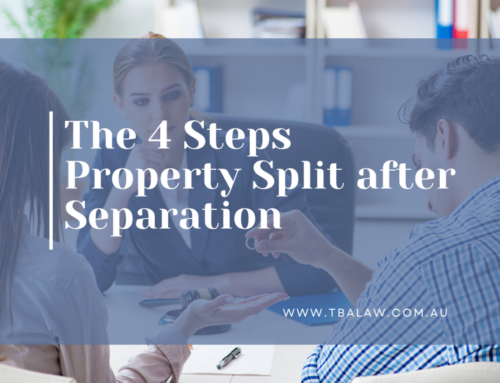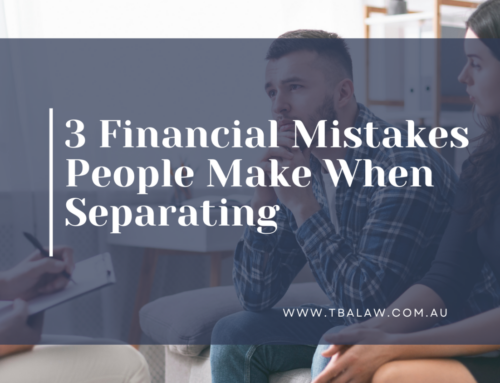Are Debts Shared in a Divorce?
by Lajita Allan-Agnew
The Family Law Act 1975 sets out the general principles the court considers when deciding financial disputes after the breakdown of a marriage. The general principles are, amongst other things, based on working out what you’ve got and what you owe (your assets minus your debts).
There is no set formula on how your debts and assets will be divided between you and your spouse and will depend on your individual circumstances. When it comes to debt, it is not attributed to whose name it’s in, i.e. it could be debt that’s in your name, your spouse’s name or in your joint names.

The courts tend to look at the amount owing as at the date of trial of both (a) unsecured debts, such as credit card debts, personal loans, unpaid taxes and bills, and (b) secured debts, such as mortgages or car leases. These are deducted from the value of the assets to arrive at a net asset figure that is available for division between the separated parties.
For secured liabilities (for example a mortgage on a home), the court ordinarily does not have discretion and it is in line with the ruling of the High Court that the court must take the property of the parties “as it finds it”, meaning subject to any encumbrances (such as registered mortgages).
When it comes to unsecured liabilities such as personal loans, credit card debts or unpaid bills or taxes, if the court considers there to be sufficient uncertainties as to the amount of the debt or/and the circumstances of how it has been incurred, it can partly or entirely disregard the debt.
Another scenario in which a debt is likely to be disregarded is when one of the parties “has incurred a debt on a frolic”i.e. it was incurred because of one of the parties’ reckless disregard of the other party’s potential entitlement at property settlement.
The following are some other instances where the court may either disregard a party’s unsecured debt or discount it:
- Where the debt has been unreasonably incurred i.e. because of wasteful, reckless or negligent spendingfor example gambling, alcohol abuse drug addiction, sex services etc;
- Where the debt is a loan to one of the parties’ parents and there is no loan agreement in place or it can be shown that the loan only needs to be paid back if and when it is convenient;
- Where the debt is owed to the Taxation office,it has been incurred post separation and where that income has not been used for the benefit of the other party or their children.
Whilst courts have the power to decide whether to disregard or discount a particular unsecured debt of a party, it cannot write the debt off. The party who has incurred the debt will be left to pay the debt with his or her share of the property order with respect to property settlement. What it means for the innocent party is that he or she will not be held accountable for the debt.
Should you be faced with a family law dispute and the ownership of debt is a factor, you should seek legal advice from a legal practitioner. We at TBA Law can help you with questions about court forms and the court process, as well as give you legal advice. For further queries contact us on 1300 043 103 to make an appointment in in any one of our offices located in Melbourne, Nagambie, Romsey, Wallan and Seymour.





Leave A Comment